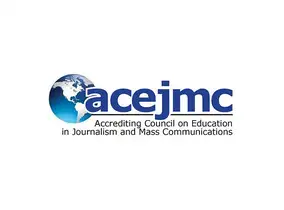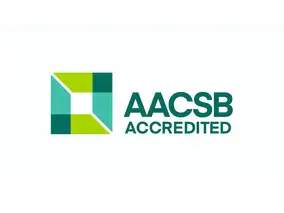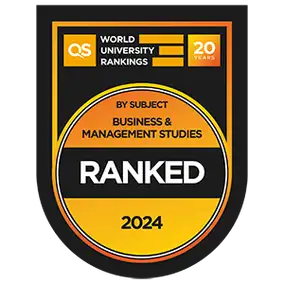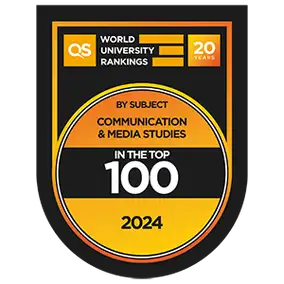Where you can study
International students
International students are not New Zealand citizens or residents.
Specialise in Public Relations for your Bachelor of Communication at Massey
The Massey Bachelor of Communication (Public Relations) will build the skills you need for a successful career in public relations. You will develop your interpersonal and inter-group communication abilities. You’ll also learn strategic thinking, planning, writing, research and information processing skills.
You’ll learn how to help organisations to communicate in persuasive and ethical ways with their staff, customers, regulators, communities, investors, and society. Public relations practitioners:
- organise events
- write and edit media releases
- write and edit online and print newsletters and publications
- manage risk and crisis communications
- develop strategic public relations plans, and
- build relationships through digital media.
Sought-after by employers
82% of graduates are employed within two years of graduation. These graduates are employed across nine different industry categories with more than 60 different job titles.
Leading the way
Massey University was New Zealand’s first institution to offer university-level courses in public relations, so you’ll be able to take advantage of our extensive knowledge and experience in teaching this discipline. This major is accredited by the Accrediting Council on Education in Journalism and Mass Communication (ACEJMC).
A Bachelor of Communication in Public Relations is a good fit if you:
- enjoy planning and research
- are creative and a good writer
- understand the importance of relationships, and like keeping up with news and issues.
Planning information
Full-time study in your first year comprises eight 15-credit courses, for a total of 120 credits. We recommend studying 60 credits per semester. You may also wish to take some courses at summer school but ensure you include those that are required for the next level of courses.
Although you are asked to nominate your BC major and minor when enrolling, please be aware that you can change these once you are enrolled.
No course can be credited to a major and a minor.
This major
Completing a major is compulsory. The Public Relations major requires 120 credits including at least 60 credits at 200 level and 60 credits at 300 level.
Minors
Completing a minor is compulsory.
Minors increase the breadth of your degree. They give you extra knowledge, attributes and capabilities.
The Public Relations major is from the Massey Business School. That means you can choose a minor from the list of majors the College of Humanities and Social Sciences offers:
- Expressive Arts
- International Languages
- Linguistics
- Media Studies
- composite Expressive Arts/Media Studies.
A Public Relations minor (for students who are studying a different degree)
If you are not studying a Bachelor of Communication and wish to complete a minor in Public Relations, see the Bachelor of Communication regulations for requirements.
Official regulations
To understand what you need to study and must complete to graduate read the official rules and regulations for this qualification.
You should read these together with all other relevant Statutes and Regulations of the University including the General Regulations for Undergraduate Degrees, Undergraduate Diplomas, Undergraduate Certificates, Graduate Diplomas and Graduate Certificates.
Returning students
For returning students, there may be changes to the majors and minors available and the courses you need to take. Go to the section called ‘Transitional Provisions’ in the Regulations to find out more.
In some cases the qualification or specialisation you enrolled in may no longer be taking new enrolments, so may not appear on these web pages. To find information on the regulations for these qualifications go to the Massey University Calendar.
Please contact us through the Get advice button on this page if you have any questions.
Courses you can enrol in
Course planning key
- Prerequisites
- Courses that need to be completed before moving onto a course at the next level. For example, a lot of 200-level courses have 100-level prerequisite courses.
- Corequisites
- Courses that must be completed at the same time as another course are known as corequisite courses.
- Restrictions
- Some courses are restricted against each other because their content is similar. This means you can only choose one of the offered courses to study and credit to your qualification.
Core courses for the Bachelor of Communication
As well as the specialisation courses listed below, this qualification has core courses that you will need to complete.
Bachelor of Communication core courses
Public Relations courses
Course code: 156235 Social Media and Digital Marketing 15 credits
A study of the impact, application and evaluation of new digital media marketing strategies and techniques.
View full course detailsCourse code: 219207 Writing for Public Relations and Digital Media 15 credits
This course develops students’ skills in writing for public relations and relationship management purposes, with particular attention paid to the characteristics and requirements of digital media.
View full course detailsCourse code: 219209 Public Relations Practice 15 credits
An introductory study of public relations and its use to create and maintain communication between organisations and their internal and external publics. Theoretical and practical approaches are combined so that students are introduced to the diversity of contemporary public relations theory and techniques and have opportunities to develop key skills in practical assignments.
View full course detailsCourse code: 219305 Public Relations Management 15 credits
This course provides an in-depth examination of public relations theory and shows how it applies to practice. It focuses on strategic engagement with diverse publics, the development of long-lasting and meaningful organisational relationships, and reputation management.
View full course detailsCourse code: 219309 International Case Studies in Public Relations 15 credits
An examination of the practice and theory of public relations internationally, overviewing the increasingly global industry structure, comparing international theoretical approaches, and introducing specialist intercultural communication skills for internationally mobile public relations practice.
View full course detailsCourse code: 219312 Risk and Crisis Communication 15 credits
This course critically evaluates ways that organisations can manage reputational risk and communicate in response to crisis situations.
View full course detailsCourse code: 219206 Communication and Technological Change 15 credits
This course examines the impacts of technology on communication, organizations, and cultures. Students will learn to anticipate change and engage with big problems. Students will also design, create and critique human-centric, ethical solutions to help navigate the complex challenges of the 21st century.
View full course detailsCourse code: 219231 News Reporting 15 credits
An exploration of current principles and practices and the fundamentals of news gathering and news production.
View full course detailsAt least 15 credits from 300 level courses
Course code: 219311 Communication Internship 15 credits
This course provides students with a period of workplace experience with knowledge of communication concepts and terminology gained throughout their degree, in a series of analytical assessments.
View full course detailsCourse code: 219335 Media Law and Ethics 15 credits
A reflection on ethical issues involved in contemporary media practices and the application of the principles of media law.
View full course detailsEntry requirements
Admission to Massey
All students must meet university entrance requirements to be admitted to the University.
Specific requirements
There are no specific entry requirements for this qualification, outside of university admission regulations.
English language requirements
To study this qualification you must meet Massey University's English language standards.
English language skills
If you need help with your English language skills before you start university, see our English for Academic Purposes (EAP) courses.
Can't meet the entry requirements?
If you need to do a course before you start your qualification, there may be options for you in Summer School.
Fees and scholarships
Fees, student loans and free fees scheme
Your tuition fees may be different depending on the courses you choose. Your exact fees will show once you have chosen your courses.
There will also be some compulsory non-tuition fees and for some courses, there may also be charges for things such as study resources, software, trips and contact workshops.
- Get an estimate of the tuition fees for your qualification
- View a list of non-tuition fees that may be payable
Already know which courses you're going to choose?
You can view fees for the courses that make up your qualification on the course details pages.
Student loans (StudyLink) and Fees Free scheme
You may be eligible for a student loan to help towards paying your fees.
The New Zealand Government offers fees-free tertiary study for eligible domestic students. Find out more about the scheme and your eligibility on the Fees Free website. To use the site's eligibility checking tool, you will need your National Student Number.
Current and returning Massey students can find their National Student Number in the student portal.
- Student loans (StudyLink)
- Fees Free
- Student portal
Fees disclaimer
This information is for estimation purposes only. Actual fees payable will be finalised on confirmation of enrolment. Unless otherwise stated, all fees shown are quoted in New Zealand dollars and include Goods and Services Tax, if any. Before relying on any information on these pages you should also read the University's Disclaimer Notice.
Careers and job opportunities
Your Massey PR education equips you with a sound grasp of the classic PR disciplines. The Bachelor of Communication structure enables you to complement this with areas such as creative communication. This is a potentially winning combination in the contemporary job market, where employers increasingly value creativity and adaptability.
The internship course included in this major offers you the opportunity to gain real life PR experience as part of your studies, and our students are highly rated by internship hosts ranging from local councils to creative consultancies.
Enterprises across the spectrum of private sector, government and not-for-profits now grasp the importance of public relations for managing organisational reputation and key relationships.
Surveys show BC graduates consistently enjoy high rates of employability, across a wide range of industry categories. Job titles include communication coordinator, consultant, content and social media specialist, project manager and advisor.
Public relations practitioners love how every working day is different, busy and challenging, drawing on creativity and strategic planning to make a real difference in their organisations and communities.
International students
New Zealand is a great place to study. Massey University’s reputation is supported by our international rankings, accreditations and associations. We are rated five star plus by the QS World University Rankings.
Massey University has small class sizes, and our lecturers and staff are friendly and approachable.
As an international student, there are entry requirements that will apply to you. We recommend that you apply at least three months before your anticipated start date so your application can be processed in time. There are additional steps you will need to take. These include obtaining a visa and travel bookings if your study is to be in New Zealand.
What our students say
“Every day I use the basic PR skills and tactics I learnt at Massey, like writing press releases and media liaison. Now I’m an account manager I have more of a hand in the overall client planning and strategy, which my PR management paper prepared me for.”

“My study experience at Massey University can only be described in one word - incredible. I am so grateful for the opportunities that were presented to me and I am so proud to be a Massey graduate.”

Accreditations and rankings

Accrediting Council on Education in Journalism and Mass Communication (ACEJMC)
Massey’s Bachelor of Communication is the only degree outside the Americas and the Middle East to be recognised by the Accrediting Council on Education in Journalism and Mass Communication (ACEJMC).

Association to Advance Collegiate Schools of Business (AACSB)
Massey Business School is rated in the top 5% of global business colleges by AACSB International.

QS Ranking - Business Management Studies
Massey University is ranked by QS (Quacquarelli Symonds) as one of the top 400 universities for business and management.

QS Ranking - Communication and Media
Massey is ranked by QS (Quacquarelli Symonds) as one of the top 100 universities for communication and media studies. QS is an organisation that ranks universities worldwide in various topics.

ShanghaiRanking - Communication
Communication at Massey is ranked #1 in New Zealand, and 76th in the world, by ShanghaiRanking.
Related study options
Useful planning information

Key information for students
Compare qualifications and academic information across different New Zealand institutions. Learn more on careers.govt.nz